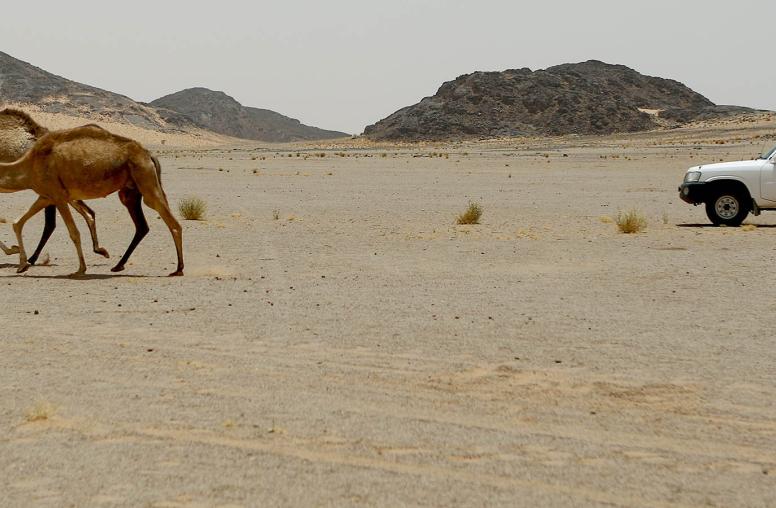Commission of Inquiry: Algeria
Commission of Inquiry: Ad Hoc Inquiry Commission in Charge of the Question of Disappearances
Duration: 2003 - 2005
Charter: Presidential decree 03-299
Commissioners: 6
Report: No public report
Commission of Inquiry: Ad Hoc Inquiry Commission in Charge of the Question of Disappearances (Commission d’Enquête ad hoc chargée de la question des disparus)
Dates of Operation: September 21, 2003 – March 31, 2005 (18 months)
Background: In January 1992 the Algerian military cancelled national elections when it appeared that an Islamist party would come to power. This resulted in protests and violent attacks by Islamist militias against the police and military and, eventually, against civilians. Algerian security forces declared a state of emergency and began a crackdown on the militias, causing the disappearance of individuals suspected of supporting them.
After President Abdelaziz Bouteflika was elected president in April 1999, he passed a law granting amnesty to people who turned in their weapons. Then, in 2001, he established a National Human Rights Institution. In 2003 Bouteflika created the Ad Hoc Inquiry Commission in Charge of the Question of Disappearances with the stated aim of addressing the fate of more than 7,000 people who were disappeared, and over 150,000 who were killed during the seven years of civil conflict.
Charter: Presidential Decree No. 01-71, March 25, 2001 (printed in Journal Officiel, March 28, 2001) set up the National Consultative Commission on the Promotion and Protection of Human Rights, which is Algeria’s permanent human rights institution. The ad hoc commission created two years later was formed within the National Consultative Commission as a subsidiary organ. It was established by President Bouteflika on September 11, 2003 (Presidential decree 03-299 (PDF-116KB) printed in Journal Officiel, September 14, 2003, pages 3 & 4) and confirmed in his speech (PDF-104KB) on September 20, 2003.
Mandate: The Ad-Hoc Commission was empowered to identify, investigate and determine the fate of people who were disappeared between 1992 and 1999 and to draft a reparations plan for the families of the disappeared. The mandate did not extend to identifying perpetrators.
Commissioners and Structure: The Ad-Hoc Commission was composed of six Algerian commissioners, including five men and one woman. It was chaired by Farouk Ksentini. Members were appointed by the President and drawn from the National Consultative Commission on the Promotion and Protection of Human Rights.
Report: The Ad-Hoc Commission submitted a confidential report to President Abdelaziz Bouteflika on March 31, 2005 but never made the report public.
Findings:
Conclusions
- Even though the commission did not publish its findings, the commission's chairman Farouk Ksentini indicated in public statements that the Algerian Army was responsible for more than 6,000 of the disappearances and many more deaths.
Subsequent Developments:
Prosecutions
- A Charter for Peace and National Reconciliation was approved by public referendum in September 2005, enacted by Presidential Decree 05-278 (PDF-105KB) in February 2006 and implemented by Ordinance No. 06-02 (PDF-428KB) of February 27, 2006. The charter grants amnesty for most crimes both to security forces and armed Islamist groups. The controversial charter provides up to five years in prison for any statement or activity which “harms” state institutions, “the good reputation of its agents” or the image of Algeria.
Reparations
- Presidential decree 05-278 proposed reparations for families of the disappeared. Since 2006, about 2,640 families have received compensation totaling approximately $37 million USD. Compensation was only awarded, however, with the presentation of a death certificate, which many were reluctant to obtain without knowing the fate of their loved ones. Victims argued that the government was trying to bribe them to stop asking for information.
Special Notes: Since 1995, several administrative bodies within the Ministry of the Interior and the Ministry of Justice were authorized to collect complaints about disappearances. The Ad Hoc Commission created in 2003 attempted to streamline these previous efforts.
Sources:
Algeria Watch. Memorandum of families of the disappeared in Algeria. September 5, 2002. Available at http://www.algeria-watch.org/mrv/mrvdisp/memorandum_familles_050902.htm (accessed July 1, 2008).
Bouteflika, Abdelaziz. "Installation Du Mécanisme Ad Hoc De Prise En Charge De La Question Des Disparus", Allocution de son Excellence Monsieur le Président de la République aux Membres du Mécanisme Ad Hoc, Alger, September 20, 2003.
Dutour, Nassera. Le Dossier Des Disparitions Forcées n’est Pas Soluble Dans l’indemnisation. Paris: Le Collectif des familles de disparu(e)s en Algérie, 2004. Available at http://www.algeria-watch.de/fr/mrv/mrvdisp/collectif_indemnisations.htm (accessed June 23, 2008).
Human Rights Watch. Vérité Et Justice En Suspens: La Nouvelle Commission Étatique Sur Les « Disparitions »2003. Available at http://www.hrw.org/french/reports/2003/algeria1203/index.htm (accessed June 23, 2008).
Human Rights Watch. Impunity in the Name of Reconciliation: Algerian President’s Peace Plan Faces National Vote September 29 2005. Available at http://www.hrw.org/backgrounder/mena/algeria0905/index.htm (accessed June 23, 2008).
Rafa, Amar. "Dans La Logique Du Processus De Réconciliation Nationale." Algeria Watch; La Tribune, September 21, 2003. Available at http://www.algeria-watch.de/fr/mrv/mrvdisp/instrument_adhoc_prerogatives.htm (accessed June 23, 2008).
United Nations. Report of the Panel Appointed by the Secretary-General of the United Nations to Gather Information on the Situation in Algeria in Order to Provide the International Community with Greater Clarity on that Situation. September 10, 1998. (accessed October 26, 2011).



